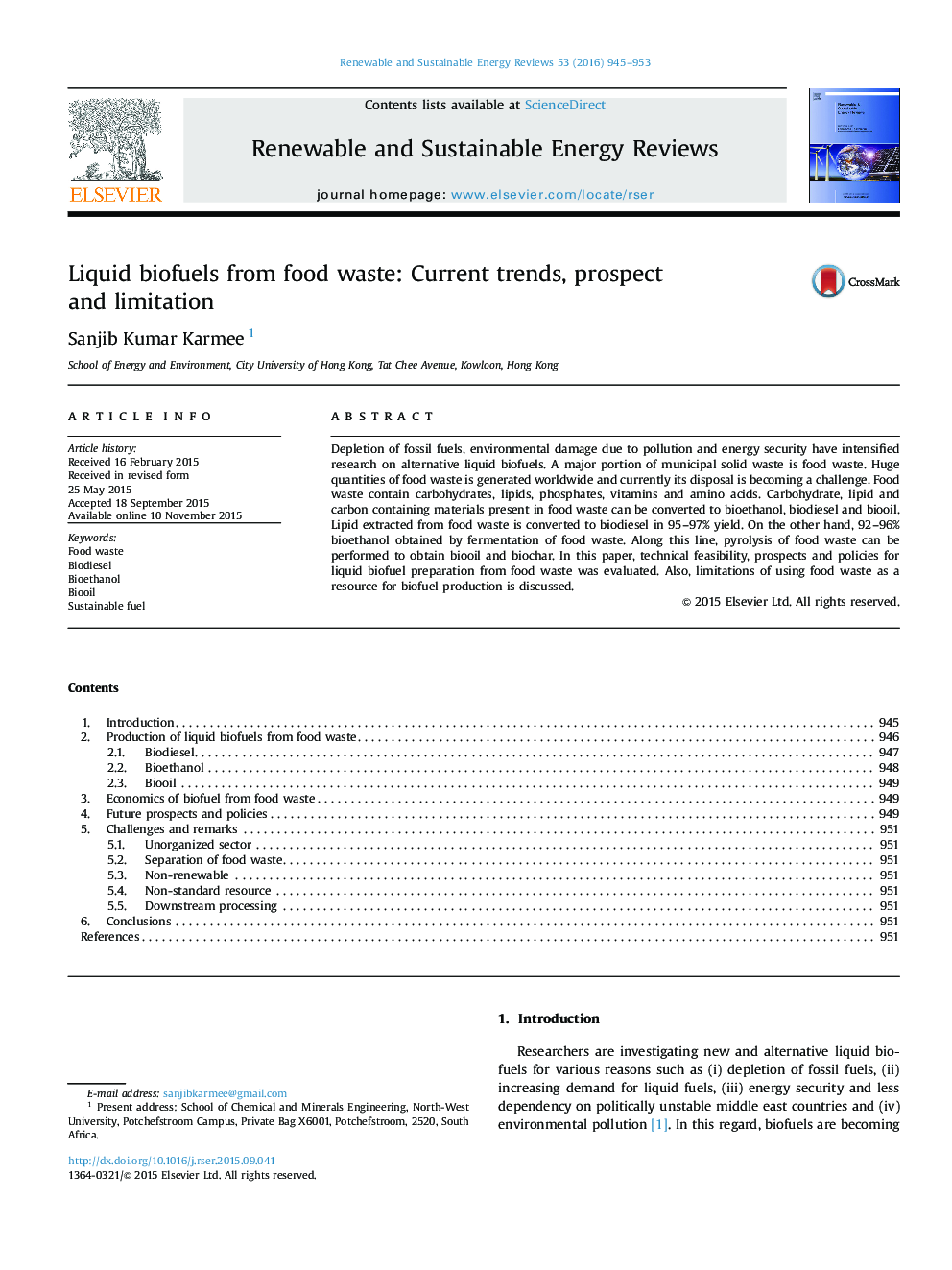| Article ID | Journal | Published Year | Pages | File Type |
|---|---|---|---|---|
| 8115618 | Renewable and Sustainable Energy Reviews | 2016 | 9 Pages |
Abstract
Depletion of fossil fuels, environmental damage due to pollution and energy security have intensified research on alternative liquid biofuels. A major portion of municipal solid waste is food waste. Huge quantities of food waste is generated worldwide and currently its disposal is becoming a challenge. Food waste contain carbohydrates, lipids, phosphates, vitamins and amino acids. Carbohydrate, lipid and carbon containing materials present in food waste can be converted to bioethanol, biodiesel and biooil. Lipid extracted from food waste is converted to biodiesel in 95-97% yield. On the other hand, 92-96% bioethanol obtained by fermentation of food waste. Along this line, pyrolysis of food waste can be performed to obtain biooil and biochar. In this paper, technical feasibility, prospects and policies for liquid biofuel preparation from food waste was evaluated. Also, limitations of using food waste as a resource for biofuel production is discussed.
Related Topics
Physical Sciences and Engineering
Energy
Renewable Energy, Sustainability and the Environment
Authors
Sanjib Kumar Karmee,
